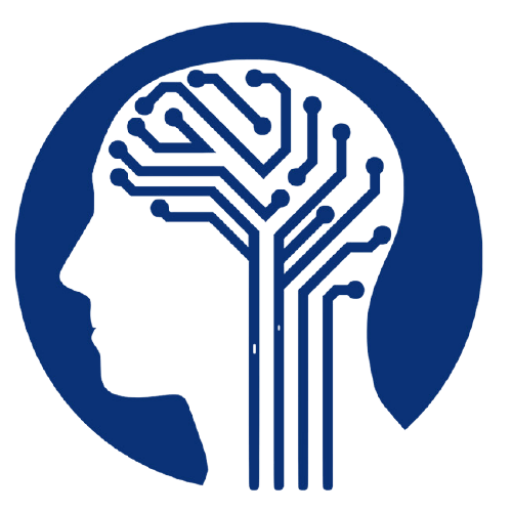
The Role of Technology in the Future and Development of Nigeria
In this day and age, technology has asserted itself as the main force in the human experience, with the capacity to propel many emerging countries to affluence and significance. Most emerging economies are benefiting greatly from access to technology innovation. Countries throughout the world are spending substantially in building capacity to create wealth and prosperity in the digital economy by providing necessary digital skills and infrastructure to empower their population, having embraced the disruptive power of technology.
Technology has become vital not only to national growth but also to humanity’s well-being and thus the efficient use of technology is critical to the primary nexus of political, economic, social, diplomatic, cultural, and intellectual power. Advanced economies have adapted to technological developments and prioritized them to offer their businesses a competitive advantage in the global market, while their developing-country counterparts are still striving to gain access to this system. This is due to the lack of a framework for overseeing technology that can deliver economic and social benefits in those countries. When we consider that technology encompasses not just tools, implements, and artifacts, but also entire networks of social relations that organize, constrain, and enable social life, we might argue that humanity and technology form a circle, one molding and influencing the other.
Since the beginning of the first industrial revolution in Britain in the 1770s, advancements in technology and innovation have increased at an exponential rate. Since then, the world has had four industrial revolutions, each one growing and developing on the one before it. The steam engine, the age of science and mass manufacturing, and the rise of digital technology marked the first three industrial revolutions, which substantially altered the globe. The fourth industrial revolution has indeed already begun which features Artificial Intelligence (AI), blockchain, robotics, face recognition, paperless learning, and a cashless economy, among other things.
Several industries in Nigeria, like the banking and financial industry, are making conscious and concerted attempts to align with global best practices in technology innovation like trustworthy e-wallets, e-payment platforms as well as creativity and beneficial application of technology for Nigeria to enter the paperless era, or using tech in breaking of old transport and logistics monopolies with the introduction of technology-driven cabs and ride-sharing service, or by building applications and other technology tools that improves e-learning, instruction, and, in turn, knowledge. Technological advancements are also ongoing to increase our access to high-quality healthcare and other services. Many components of the Fourth Industrial Revolution feel strange and, to many, dangerous due to the complexity of these technologies and their emergent nature.
Technology is assisting emerging economies in a variety of ways, including lowering manufacturing costs, increasing efficiency, improving service delivery, and encouraging the establishment of new enterprises, particularly Small and Medium Enterprises (SMEs) in all sectors who are taking advantage of new technology and innovations to create jobs and grow their business operations. All industrial revolutions are ultimately driven by people’s individual and communal choices. And it’s not just the decisions made by the academics, inventors, and designers who create the underlying technologies that count; it’s also the decisions made by investors, consumers, regulators, and citizens who accept and use these technologies in their daily lives.
Nigeria, as one of Africa’s fastest-growing economies, should also be embracing emerging technological advancements and digital initiatives to drive the country. Nigeria should use these emerging technologies and innovations to boost growth in key sectors like education, health, agriculture, banking and finance, transportation, commerce, and trade as technology’s impact on the expansion of many sectors of the economy cannot be overstated. When operations are being conducted digitally, it reduces costs, improves efficiency and effectiveness, and improves client happiness as there is a link between technical advancements, economic growth, and overall human wellbeing, given current global economic and social circumstances.
Current developments in the field of technology and innovation in Nigeria show dynamics that indicate that despite existing concerns about our technological sector’s capacity and capabilities to effectively catalyze our nation’s development process, growing awareness of technology’s pivotal role in nation-building appears to be changing the conventional traditions. If appropriately exploited, Nigeria’s thriving and dynamic youth population, estimated at over 70% of the country’s 200 million inhabitants, might act as a high employer of personnel drawn mostly from the booming population of our young men and women.

As we enter the Fourth Industrial Revolution, it seems evident that technology will play a significant role in almost every aspect of our lives. According to World EF research, 65 percent of students entering primary school will work in occupations that do not exist today. It is anticipated that 1.5 million new digitized employment would be created globally by 2020. Simultaneously, 90 percent of businesses are experiencing an IT skills shortage, and 75 percent of educators and students believe they are unable to match the IT workforce’s skills requirements. Education must adapt as quickly as the need for IT skills grows and evolves in order to develop the talent needed for the digital economy. Technology provides us with new potential to shape learning experiences and achieve learning goals as the digital revolution progresses. Educators can build a dynamic, digital, and hands-on learning experience that is personalized, flexible, and relevant by applying learning science insights to IT education, producing the talent needed to power the digital economy. We can utilize the most of what digitally enhanced and human-driven education has to offer by combining learning sciences with digital innovation, creating learning experiences that keep pace with the digital skills expected by the market. As a result, individual lives are affected, businesses are supported, and global communities are transformed.
Technology is the way of the future. As a result, enterprises, countries, and individuals who are quick to integrate technology into their operations and governance will likely stay relevant in the future. The future is now related to providing knowledge-based answers to practical problems in education, medicine, commerce and industry, the environment, and other key areas of human endeavor, as a result of the dramatic change from the agrarian, industrial, and information ages. A new generation of young entrepreneurs is rising almost every day in many nations to embrace the opportunity using IT and basic engineering to generate enormous money with fewer manual efforts while also having a global influence and Nigeria should not be excluded from this global transformation.
The United States leads the world in the number of startups per country, with 62,573. During his official visit to Nigeria in August 2000, then-US president Bill Clinton talked to a group of business leaders in Abuja, where he discussed Nigeria’s history and forecasted its future. He said Information technology has essentially collapsed the sense of distance for those with ideas and imagination, making the human intellect and ideas even more valuable than earthly riches. “So, what exactly does that imply? What does that imply for you personally? How does it affect us?” he continued. Clinton, citing examples from India, for Nigerian authorities to lay less emphasis on extractive industries (particularly oil and gas) and focus more on education for their young inhabitants.
Let’s examine some of the world’s leading economies and their interaction with technology.
Finland thanks to its world-class digital infrastructure is reaping the benefits of investing extensively in ICT in the mid-1990s, which it did in reaction to a financial crisis, with more than 90% of the people utilizing the internet and high levels of innovation.
Singapore with the help of government and a defined digital strategy, a constantly improving ICT infrastructure, the greatest online services, and the highest-quality education systems in the world is a city-state that has grown into a knowledge-intensive economy and ICT powerhouse.
Sweden owing to its world-class yet affordable digital infrastructure and steady pro-business environment has resulted in exceptional ICT use by individuals, corporations, and government, as well as one of the greatest levels of innovation in the world, transforming Sweden into a true knowledge-based society.
The Netherlands maintains its strong use of tech in increasing innovation and competitiveness that has been swiftly and deftly recognized in this service-based economy. In the Netherlands, information technology pervades many aspects of society, with practically everyone having access to a computer and internet connection at home, and a vast number of government services available online.
In Norway, with a well-developed and cheap digital infrastructure, digital adoption is nearly universal: 95 percent of the population uses the internet, and more than 90 percent has access to a personal computer and internet connection at home. Furthermore, the country benefits from a stable pro-business and pro-innovation climate, as well as a government that recognizes the necessity of connectivity for the economic and social development of a vastly dispersed people.
Switzerland has a strong education system and an excellent, albeit expensive, ICT infrastructure that provides the required skills to build a knowledge-based, technology-rich economy. These assets, together with a stable political and regulatory climate, as well as favorable conditions for innovation and entrepreneurship, have resulted in high levels of digital adoption and use by enterprises.
The United States, thanks to advances in the country’s already strong business and innovation climate and infrastructure, particularly in terms of international internet bandwidth availability, all key players in the country, whether enterprises, governments, or citizens, have shown a strong interest in digital technology.
Hong Kong has improved in its environment for innovation and entrepreneurship, better skill training, well-developed infrastructure, and expanded use by both business and government have all benefited their economy and society.
The United Kingdom, like the Netherlands, was an early adopter of ICTs, particularly in terms of innovation and competitiveness, and as a result has become extensively digitized, with a strong e-commerce sector. This, combined with a pro-business attitude, has resulted in significant economic and social gains.
Korea’s government ranks #1 in the world in terms of online services, a country whose economic success has been primarily built on the technology industry. The country’s focus on technological capacity development as part of its economic growth strategy has boosted the country’s reputation for innovation. Korea’s rise to the top is mostly owing to a rise in patent activity, which it leads, as well as strong R&D and manufacturing performance. In South Korea, there is a near-universal agreement that “research and development are necessary to have a future.”
Technology is widely acknowledged in economics as the primary driver of economic growth and ultimately prosperity in countries, regions, and cities. Africa is widely regarded as the next large growth market, a label that has been applied to the continent for some time. There are several reasons to be optimistic: Africa has some of the world’s youngest populations, it will be a key consumer market over the next three decades, and it is becoming increasingly mobile phone-enabled. Because access to smartphones and other devices improves consumer information, networking, job-creating resources, and even financial inclusion, a burgeoning digital ecosystem is critical as a multiplier of that progress.

Despite these reasons for hope, the promise has yet to be realized. The following represents some of what Africa and particularly, Nigeria, stands to gain from developing and investing in its technology:
- Job Creation
The ICT industry is and will continue to be, one of the largest employers. Computer and information technology occupations are predicted to expand by 22% in the United States by 2020, adding 758,800 new positions. The construction and operation of Australia’s new super-fast National Broadband Network will sustain 25,000 employment per year. Naturally, growth is uneven across different segments.
In the United States, on average, five more jobs are produced in other industries for every job created in the high-tech industry. The worldwide tech market is expected to grow by 8% in 2013, resulting in more jobs, higher pay, and a wider choice of services and products.
- Contribution To The Growth Of The Economy
The favorable impact of ICT on growth has been confirmed by research from a variety of countries. In emerging nations, for example, a 10% rise in broadband penetration is linked to a 1.4 percent boost in GDP growth. This figure could reach 2.5 percent in China. The increase in 3G connections doubles mobile data usage, which enhances global GDP per capita growth by 0.5 percent. In some countries, the Internet accounts for 3.4 percent of total GDP. E-commerce — people advertising and selling items online – is responsible for the majority of this influence.
- The Emergence Of New Industries And Services
Numerous government services are now accessible via the internet and mobile phones. One of the most important modernization trends is the move to cloud computing. Moldova’s government is one of the first in Eastern Europe and Central Asia to move its government IT infrastructure to the cloud and provide residents and companies mobile and e-services. Technology has facilitated the birth of a brand-new industry: the app industry. According to research, Facebook apps alone created over 182,000 employment in 2011, with the total value of the Facebook platform exceeding $1 billion.
- Entrepreneurial Spirit
Tech has aided the emergence of entrepreneurship by making best practices, legal and regulatory information, marketing, and financial resources much more accessible to self-starters.
However, thanks to decreased connectivity costs, technology has the ability to help development and progress by providing more information for better job matching, cheaper consumer pricing, and broader access to new markets and services. For example, in Kenya, access to mobile money M-PESA raised per capita consumption and lifted 2% of Kenyan households out of poverty, particularly those headed by women. Drones are being used by a Rwandan start-up to transport medicines and blood in rural places.
Technological advancements can potentially improve public service delivery by increasing openness and efficiency. Tanzania, for example, implemented a new mobile-phone-based tax payment system in 2013, reducing the risk of taking money to banks and lowering the cost of doing business by eliminating time spent queuing in banks. The city of Batangas in the Philippines, with the support of USAID, inaugurated a similar system in March 2014 to allow businesses to pay taxes using mobile devices.
Conclusion
The reality is despite Nigeria’s huge, youthful, and enterprising population, the potential of digital entrepreneurship to become an engine of economic transformation has yet to be fully realized hence the need to improve the policy climate for digital entrepreneurship.
Even with having the largest mobile market in Sub-Saharan Africa, Nigeria has inadequate fixed broadband infrastructure and connectivity in rural areas, leaving a considerable percentage of the most marginalized parts of the population without internet access. There’s a need to improve digital infrastructure. We should also improve digital platforms since strong public and private digital platforms enable the delivery of digital services as well as a vibrant eCommerce platform. Million more Nigerians currently lack formal identification records that allow them to access a variety of governmental and private services. Another area to look at is expanding access to digital financial services as a significant number of Nigerian adults do not have access to a formal account, which is preventing the country from achieving financial inclusion. Whereas in other vibrant economies, digital financial service providers would be responsible for financial inclusion.
Very pertinent is the need to close the digital skills knowledge gap. Only a small percentage of the population has the capabilities and skills needed to use various forms of digital technology. Increased access to higher education and the availability of online training initiatives and bringing digital skills to individuals who can benefit from them is a way to go. Low participation in basic education, along with the poor quality of that education and a lack of digital skills in curricula, is segmenting digital skills into a small percentage of the population, preventing the poorest from the benefits of the digital world.

Given Africa’s expanding population and declining oil revenues in countries like Nigeria, there is a need to diversify the economy in other ways. Nigeria’s digital economy is still in its infancy, and most of the country’s potential is tied to its people capital, rather than its technological capabilities. Through the establishment of a digital-led growth strategy for the Nigerian economy, Nigeria needs to accelerate growth and modernize its economy. Stakeholders are urged to form the required alliances and collaborations in order for Nigeria to become a leading knowledge and digital economy. Nigeria must be in a position to profit from the enormous revenue generated by technology. The adoption of digital solutions should skyrocket.
Digital technologies are changing the globe at a faster rate than earlier waves of technological innovation. Despite the economic shocks caused by the COVID-19 pandemic, the economies that grew the greatest were those with sustainable digital economies.
Technology has always fueled economic expansion, raised living standards, and offered doors to new and better realities. To take advantage of the numerous opportunities presented by new technology, we must find a means to adapt more quickly. We can “race with the machines” by constantly updating our abilities and seeking relevant skills. Change is coming, whether we like it or not, and the worst thing we can do is ignore it.
Investing in education, as well as boosting mobility and connectivity, is critical for keeping up with the fast-paced world.
We need to figure out how to harvest information and allow people to engage in the digital economy. It is necessary to establish a digital Nigeria in order to take advantage of the potential given by the fourth industrial revolution. The construction of a digital Nigeria will aid the country in achieving the social and economic development goals that we seek.
Having a strategic mentality combined with the proper technology will drive a successful transformation, as seen in any booming economy. This means we should consider how we can change the culture to maximize the benefits of technology. We can integrate digitization into procedures, and instead of needlessly spending money, time, and energy, we can just digitize processes and get results in a matter of minutes with the right technologies.




